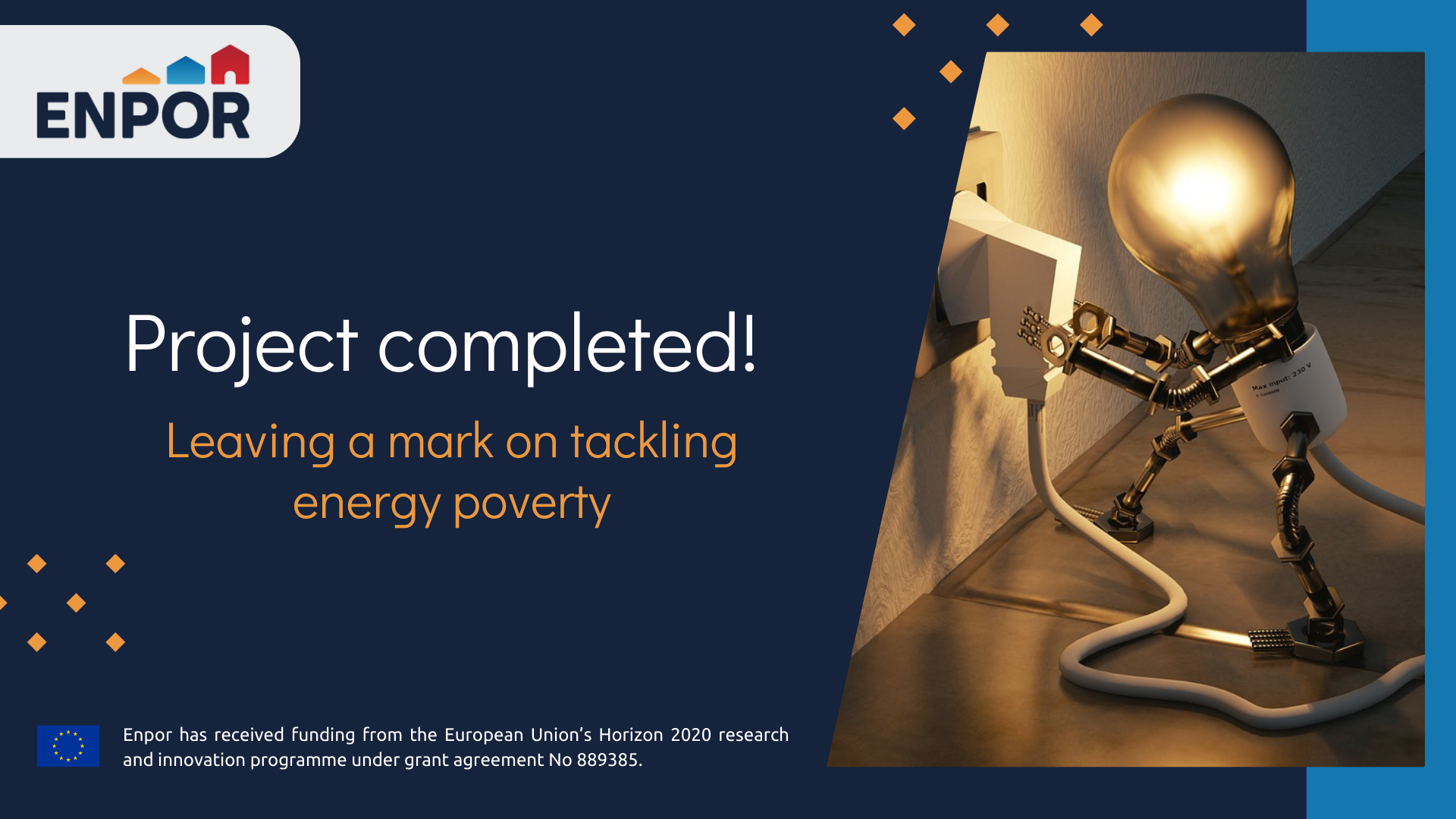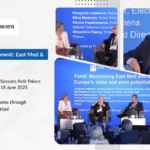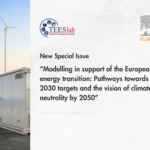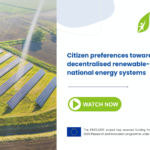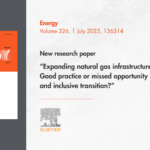After three years of intense and dedicated work towards address energy poverty in the private rented sector, the ENPOR Horizon 2020 project been successfully completed! The overall aim of the project was to make energy poverty in the Private Rented Sector (PRS) visible, identify energy poor tenants (and respective homeowners) in order to understand and address their needs and co-design and implement energy efficiency support schemes in seven European Union (EU) countries tailored to all actors’ needs.
Through the amazing collaboration of 12 partners across Europe, ENPOR achieved to support the adaption and implementation of 10 policies in 7 countries (Germany, the Netherlands, Italy, Croatia, Austria, Estonia and Greece) tailored to the PRS needs.
Moreover, the project has developed 2 tools to facilitate the alleviation of energy poverty in the PRS:
-
The Energy Poverty Dashboard (EPD): The EPD serves as a platform for stakeholders and policymakers which seeks to provide an in-depth examination of energy poverty and energy poverty policies for the PRS across the EU. It provides a pan- European platform for the spatial visualisation and quantification of energy poverty patterns in the PRS across the EU, along with associated actions/policies to address the issue.
-
The ENPOR Split Incentives tool: The tool mainly aims to identify the share of the triggered benefits from the implementation of energy efficiency interventions between landlords and tenants in order to quantify the appropriate allocation of costs or subsidy rates for both sides, towards specific energy efficiency scenarios in several geographical/national contexts and address split incentives.
Overall, ENPOR project collected expertise from various stakeholders, including government and local authorities, energy suppliers, research community, social workers, and advocacy groups, to create a robust understanding of the challenges concerning energy poverty in the PRS and identify potential solutions to overcome them. Lastly, the project partners produced a set of policy recommendations to foster energy efficiency investments and address the specific needs of landlords and tenants.
Our TEESlab – Technoeconomics of Energy Systems laboratory contributed significantly to the ENPOR project efforts. Some highlights of our work:
- Publication of the scientific article “How to improve energy efficiency policies to address energy poverty? Literature and stakeholder insights for private rented housing in Europe” in the Energy Research and Social Science journal of Elsevier.
- Three more scientific publications based on the ENPOR outcomes are under production.
- Development of the ENPOR Split Incentives Quantification Tool
- Deliverable 2.8: Structural factors impacting energy efficiency policy implementation in the European Private Rented Sector
- Deliverable 2.7: Report on the analysis of Private Rented Sector policies and measures
- Deliverable 5.5: Report on the gender dimension in European energy efficiency policy support and means to address it
- Deliverable 5.3: Key findings and inspiring cases
If you are interested in learning more about the project’s final outcomes visit the following links: Final ENPOR poster, Press Release, ENPOR policy recommendations, Gender dimension on energy poverty, EPD poster.

